I'm not sure if your library is stored in a maven repository or not. I assume it is.
I know of two ways of importing a gradle project into IntelliJ. The first being the "Import Project..." wizard from IntelliJ which works nicely. But it does not import the javadoc jars if they exist. At least I never managed it.
The second method uses the idea plugin in gradle 2.1. The plugin generates the project for you. This way I got the javadoc inside. A fully working example for a build.gradle:
apply plugin: 'java'
apply plugin: 'idea'
sourceCompatibility = '1.7'
targetCompatibility = '1.7'
repositories {
mavenCentral()
}
dependencies {
compile group: 'org.apache.commons', name: 'commons-compress', version: '1.8.1'
compile group: 'com.google.guava', name: 'guava', version: '18.0'
testCompile group: 'junit', name: 'junit', version: '4.11'
testCompile group: 'org.mockito', name: 'mockito-all', version: '1.8.5'
}
idea{
project {
languageLevel = '1.7'
}
module {
downloadJavadoc = true // defaults to false
downloadSources = true
}
}
The you can call gradle cleanIdea idea which creates your project for IntelliJ.
If your library is not stored in a maven repository you can simply put up a nexus where you upload it. This would allow you to use the method described above.






